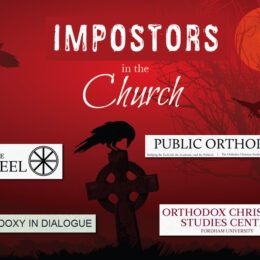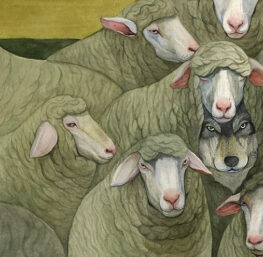Manhattan Institute | Patrick J. Deneen | Feb. 21, 2008
Overwhelming evidence attests to the liberal tilt on our college campuses. Studies show that the faculty at most mainstream institutions are overwhelmingly registered with the Democratic party and give a disproportionate share of their political donations to left-leaning candidates. A recent study of donations by faculty at Princeton University during the current Presidential election season shows that every faculty donation went to a Democratic candidate. Were such unanimity to manifest itself for conservative candidates at an academic institution, one can be certain that our leading academics would decry the lack of diversity.
Anecdotal evidence everywhere further attests not only to the liberalism of most “mainstream” faculty, but the disproportionate share of radical professors in our humanities and social sciences. Innumerable stories have been circulated of aggressive efforts to “destabilize” gender, to question “normativity,” to challenge backward institutions such as marriage and family, to encourage students to break out of pre-conceived social notions they may have inherited from parents and community. A recent article in my campus’s newspaper, The Hoya, reflects this sort of radicalism. In the column, philosophy professor Mark Lance introduces himself thusly:
I’m an anarchist, a rationalist, a feminist, a man, a pragmatist, an evangelical agnostic, a friend, a philosopher, a parent, a teacher, a committed partner of one other person and a nonviolent revolutionary. These labels are all, to different degrees, important to me; they define my sense of self. You could call them my identities, but all are “works in progress,” which is to say that the label stays roughly the same, but my sense of what it means changes and grows. (For example, I still have no idea what I mean by identifying as a man, though over the years I’ve figured out many things I don’t mean. Some days, I wish that one would drop off the list.)
Aside from its unbearable self-indulgence, it’s a predictable indication that Lance would seek to reject the one form of his “identity” that is actually given by nature. This is the one unbearable aspect of identity, because it is not chosen or willed.
Conservatives are often satisfied to register their righteous anger and indignation at this state of affairs, and have tactically adopted the language of victimhood and demands for diversity as a way of combating this left-wing hegemony. This may be politically effective and may in fact help raise awareness of the current campus culture to potential supporters outside the academy. However, these arguments are only tactical at best, and fundamentally obscure deeper investigation into why this state of affairs has come to pass and what would be required to begin a more fundamental reform of higher education.
The answer may in fact be discomfiting to many conservatives. We would like to attribute the radicalism to a foreign contagion, and in particular the incursion of French and German philosophy into a once pristine American curriculum. A thinker with no less authority and insight than Allan Bloom pointed toward the influence of Nietzsche, and subsequently Weber and Heidegger, as nefarious influences who subtly infiltrated the philosophical beliefs of the American Left.
There is doubtless much to this argument, but it tends to neglect – perhaps willfully – a potent influence that is a more native vintage, and one of considerable power and influence in the academy. The culprit underlying much contemporary radicalism, I submit, is modern science.
This would appear to be an absurd assertion on the face of it; after all, it was Alan Sokal, a physicist, who exposed the profound anti-scientism and anti-rationalism of much of our radical professoriate in his publication of a comically jargon-filled and wholly parodic “po-mo” essay that was published by the postmodern journal Social Text. Our postmodernists especially seem to be the epitome of anti-rationalism and a force for mysticism and obfuscation.
However, in at least two respects, we can perhaps better understand the tailwinds that the reign of our contemporary sciences have provided for the Left and radical ascension in our humanistic and social-science disciplines. In the first instance, the Humanities has been historically the heart of the liberal arts education, an education that confidently understood itself as providing the cultivation of young adults through exposure to the best that has been written and thought. Professors in the humanities were curators of ideas and transmitters of an extraordinary tradition: men and women who taught texts written by geniuses like Homer, Dante and Shakespeare genuinely honored and loved these texts and the authors who wrote them, and understood their texts as containing profound teachings about the nature of being human and the way in which we might pursue the good life. They approached these texts with a sense of humility and gratitude, all cognizant that they were not capable of producing works of such grandeur, insight and majesty, but content that they were essential conduits in assuring that future generations would come to a similar appreciation and love for these great books and the contributions thney made to forming human character.
There can be no doubt that social forces, particularly arising from egalitarian demands of the 1960s, worked to undermine this self-confident understanding of the humanities. However, also at play was a change in the internal ordering of the University itself: increasingly the humanities were regarded as antiquated and a luxury to demonstrate that students could add a touch of class to cocktail party conversations. Instead, Universities were beginning to retool themselves in the image of a nation enamored of science, technology, and progress. Universities increasingly turned to the Federal government for significant amounts of funding, almost all of it directed toward the natural sciences. The natural science model – the discovery of new knowledge – increasingly became the model for the university writ large. Faculty who sought tenure at research universities – that is, our elite public and private institutions – were required to produce “original research” published in refereed journals and academic presses. Strong pressures for innovation and a preference for “progress” supplanted the respect for tradition and the suspicion that there was “nothing new under the sun.” In the midst of this transformation of the modern university from repositories of the collected wisdom of the ages – in which the library was the center of the university – to the scientific model in which “creating knowledge” was the key to the kingdom – in which the laboratory supplanted the library – the humanities lost its very reason for existence. Of what value were disciplines such as Classics, History, and Philosophy (by which was understood the history of philosophy) in such a changed environment? A profound crisis of confidence ensued.
It was into this breach that modern radicalism found a fertile foothold. Philosophies that preached “the hermeneutics of mistrust,” that taught readers that authors under study were malevolent and their texts mere collections of prejudice, and that questioned even the idea that texts any longer contained a “teaching” at all, tragically offered the humanities the possibility of proving themselves relevant in the terms set by the modern scientific approach. Faculty could demonstrate their progressiveness by showing the recidivism of the texts; they could “create knowledge” by demonstrating their own superiority to the authors they studied; they could demonstrate their anti-traditionalism by attacking the very books that were the basis of their discipline. By adopting a jargon only comprehensible to few “experts” they could emulate the tiny priesthood of scientists – wholly betraying the original mandate of the humanities to demonstrate the universal accessibility and appeal of the great books. Professors in the humanities showed their relevance by destroying the thing they studied.
. . . more


